Lessons in Resilience: Preventing and Treating Malnutrition in MOMENTUM's Management of At-Risk Infants and their Mothers
All photos by Hadjara Laouali Balla/MOMENTUM Integrated Health Resilience
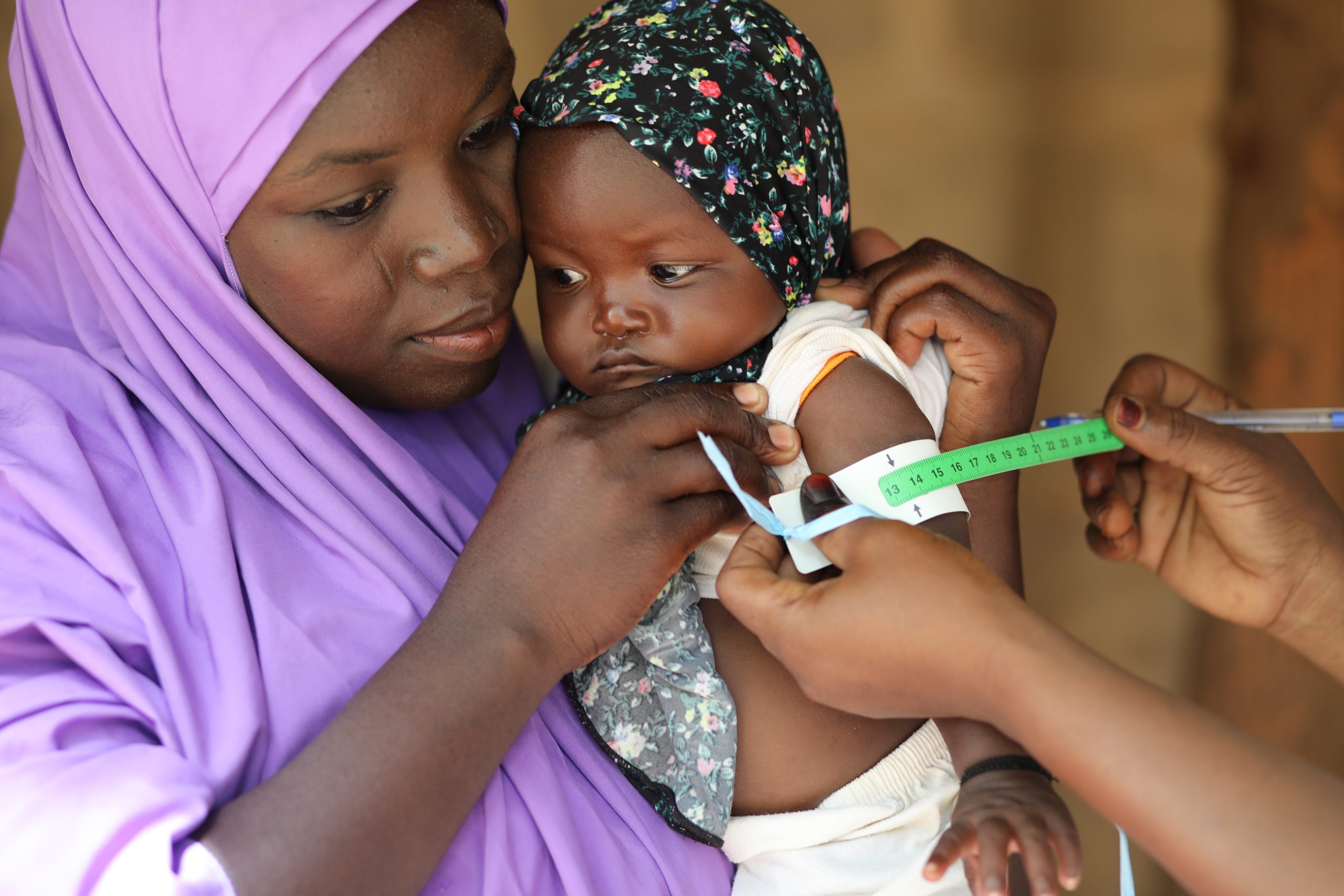
At five weeks old, baby Amira was underweight for her age and was not being exclusively fed breast milk. A community health worker identified her as at risk for malnutrition, a too common and often deadly condition for children. About one million children globally die each year from being dangerously underweight, which leaves them susceptible to other illnesses.1 Most of these deaths happen in low- and middle-income countries where access to nutritious food, health care, and training about how to maintain proper nutrition are often lacking.2
Fortunately, Amira’s mother Aminatou had the opportunity to enroll herself and her daughter in a management of small and nutritionally at-risk infants under six months and their mothers (MAMI) Care Pathway in their village of Chaoulawa in southwest Niger. The Care Pathway, implemented by MOMENTUM Integrated Health Resilience, unites families and health workers in an approach that includes community sensitization, community and health center screening, risk assessment, and care and support for infants and mothers at risk of malnutrition.
Now past the six-month threshold, Amira is meeting her growth and development targets. Her mother Aminatou said she’s noticed a difference in Amira’s development compared with her two older children, who were born before MAMI was introduced in the community: Amira has not experienced any of the illnesses that beset her siblings. Aminatou credits the MAMI approach with these improvements. In addition to the consistent care and information about her daughter’s progress and her own health and wellbeing, Amira is her only child to be exclusively breastfed once she was enrolled in MAMI at five weeks old. Both the World Health Organization and the UN children’s agency UNICEF recommend that children be exclusively breastfed for the first six months of life, as breast milk is a source of vital nutrition that lowers short and long-term health risks for infants.
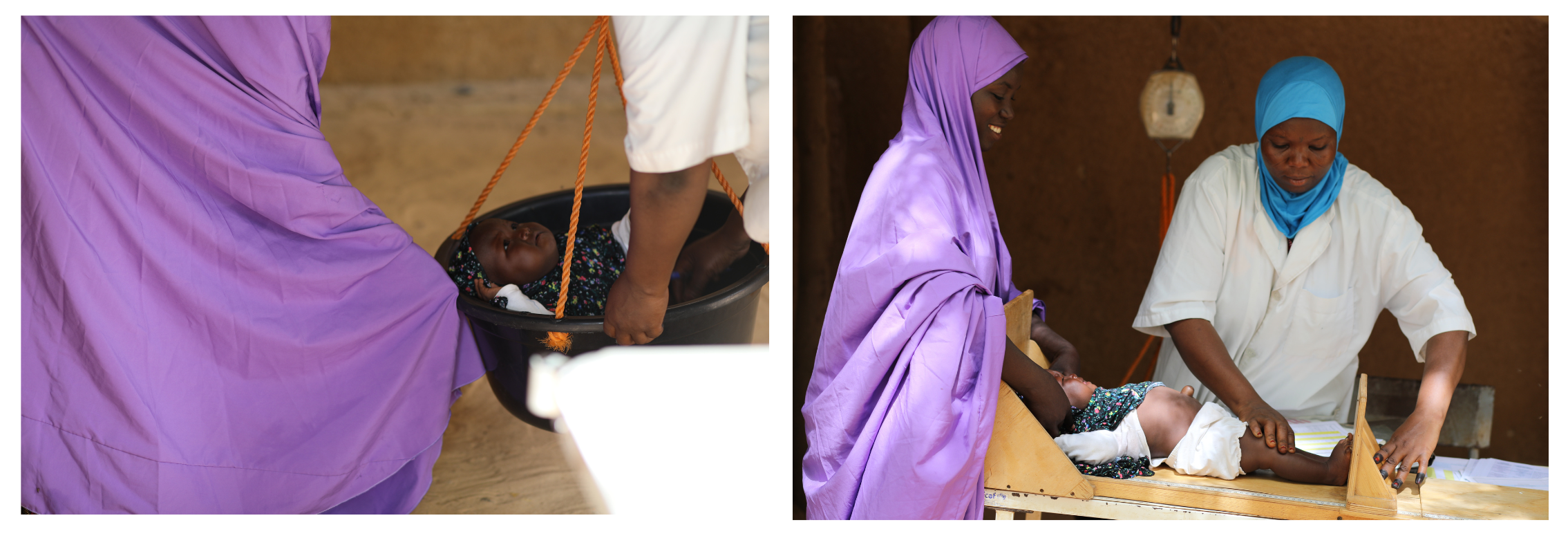
Management of At-Risk Mothers and Infants Starts with Trained Care Providers
Salamatou Ousmane noticed that Amira was at risk of poor growth and development based on measurements of weight and arm circumference taken during a home visit. Salamatou, a community health worker regionally referred to as a relais communautaire (RCom), was conducting routine screening in her area to identify health risks among households. She had recently received training on the MAMI Care Pathway and knew that Aminatou and Amira would be good candidates for this approach, centered on mother-infant pairs. She referred Aminatou to the nearest health center, where a health worker also trained in MAMI assessed the health and nutrition of both mother and daughter, including risks linked to poor feeding and growth, and explained the importance of consent.
MAMI gives health workers the skills and support to provide tailored counseling, coaching, and action planning to address the specific needs of their patients. Counselling may cover exclusive breastfeeding, infant relaxation for crying and sleep difficulties, family planning, complimentary feeding (when foods are introduced alongside breast milk once an infant is older than six months), and care for mothers. Through a risk-based approach, MAMI screening conducted at the community and facility levels allows healthcare workers to identify vulnerabilities in infants and their mothers and to act early, preventing them from becoming malnourished and requiring in-patient care.
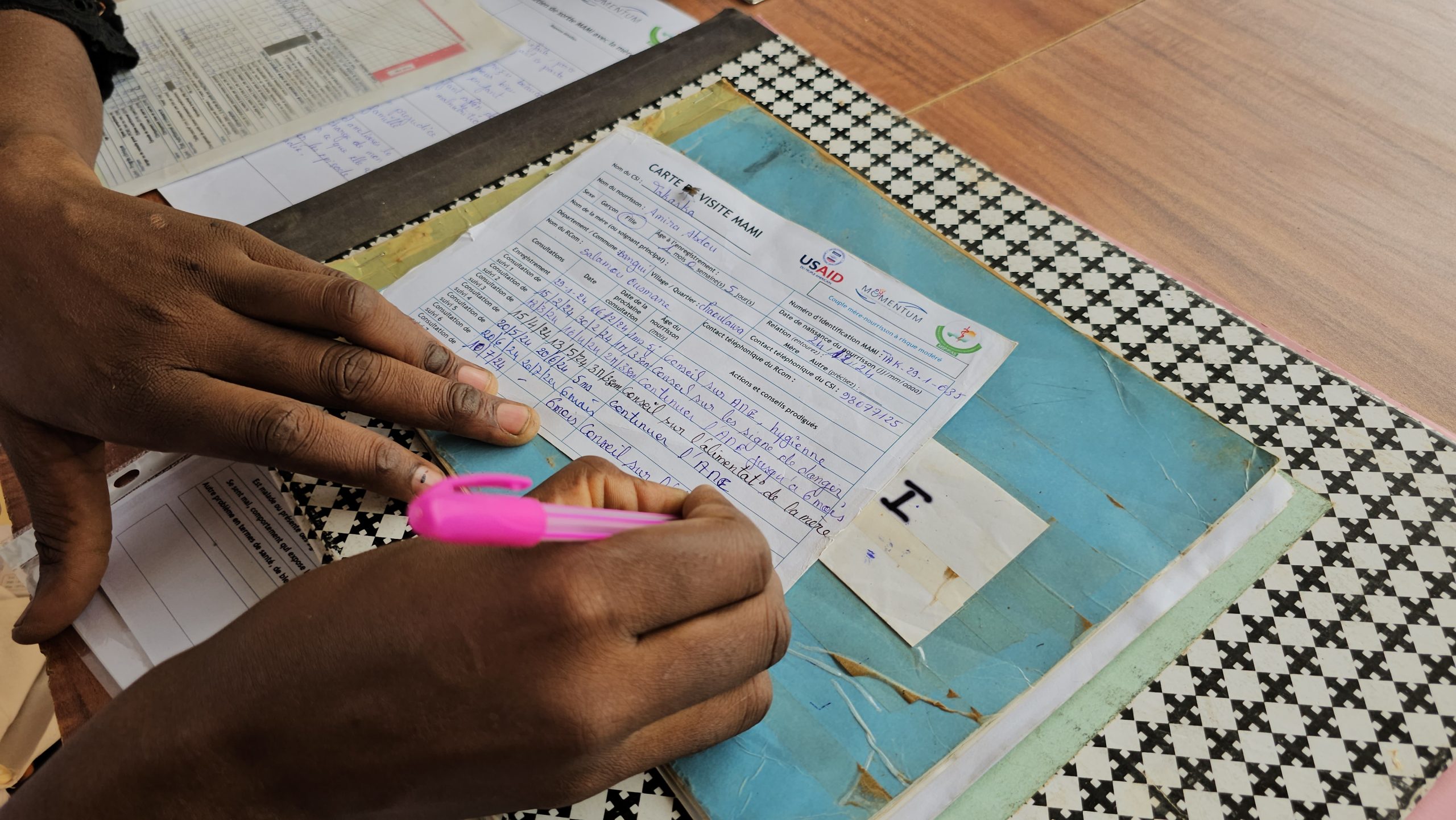
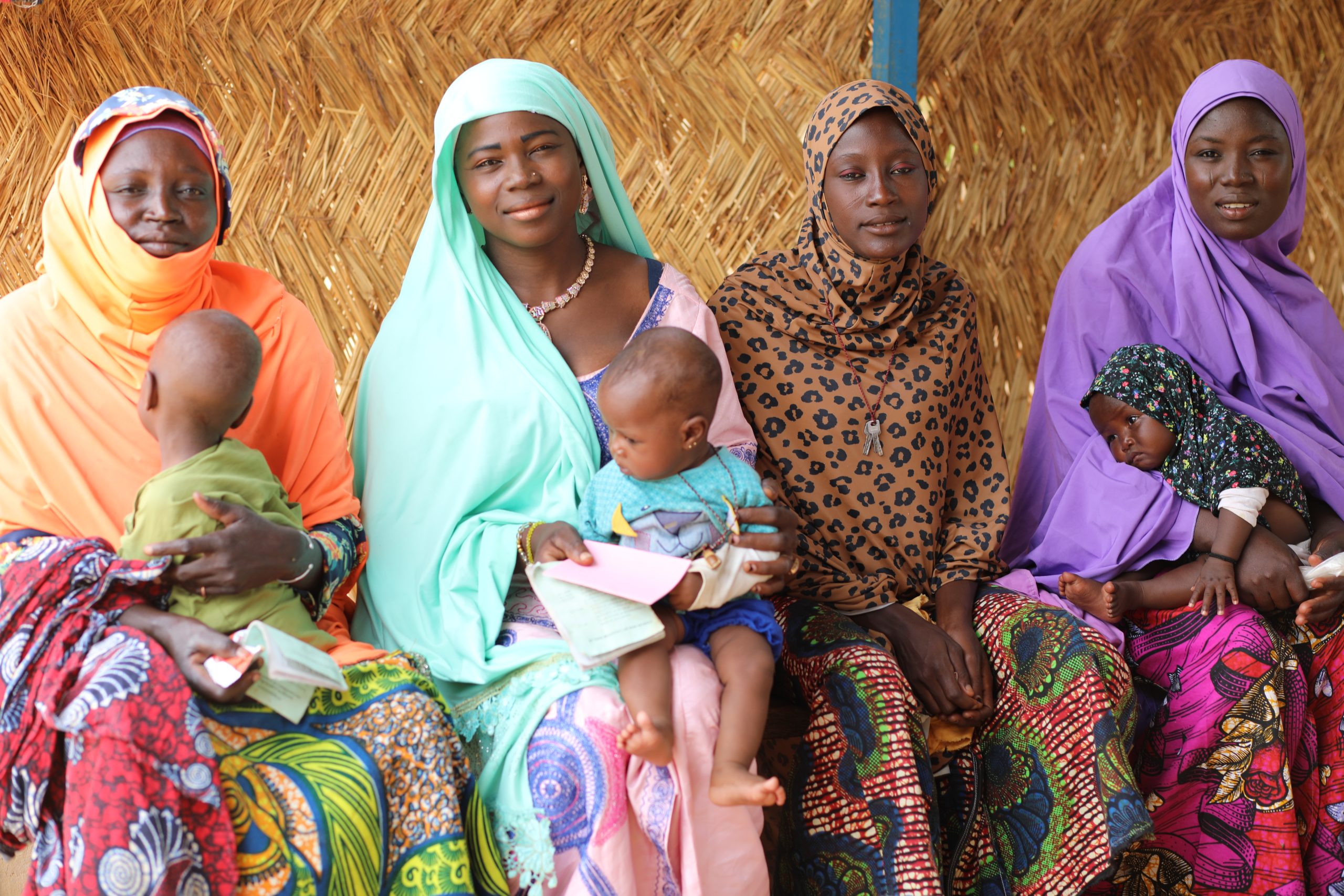
As part of its MAMI work, MOMENTUM carries out regular onsite training for health workers to learn how to use MAMI tools, collect data from patients, and provide personalized mentorship to participating mother-infant pairs. Through semimonthly or monthly visits, depending on the severity of malnutrition symptoms, care providers take and track measurements to gauge improvement among their patients. This expertise is much needed in Niger, where about 1 in 5 infants are born with low birth weight (under 2.5 kilograms or 5.5 pounds at birth), with a higher proportion born in rural areas.3 Low birth weight increases risk around a number of poor health outcomes, including malnutrition.4
An Approach Tailored to the Local Context Is Essential to Success
MOMENTUM started its MAMI work in Niger in 2023, with a two-day orientation workshop in the country’s capital Niamey that included senior representatives from the Ministry of Public Health, Population and Social Affairs; the Departments of Nutrition, Maternal and Child Health and Community Health; USAID; UNICEF; World Health Organization; and other health and nutrition partners. Participants were oriented on the MAMI approach and involved in adapting the design and implementation modality to the Nigerien context. Afterward, a three-day regional orientation workshop was held in Tahoua, where Amira and Aminatou live, with 25 clinicians from MAMI sites in Dosso and Tahoua. During each of these workshops, stakeholders and healthcare providers discussed MAMI implementation and suggested improvements to the MAMI materials. Importantly, the workshops also focused on translating key MAMI technical concepts and language into Hausa, the predominant language across much of Niger.
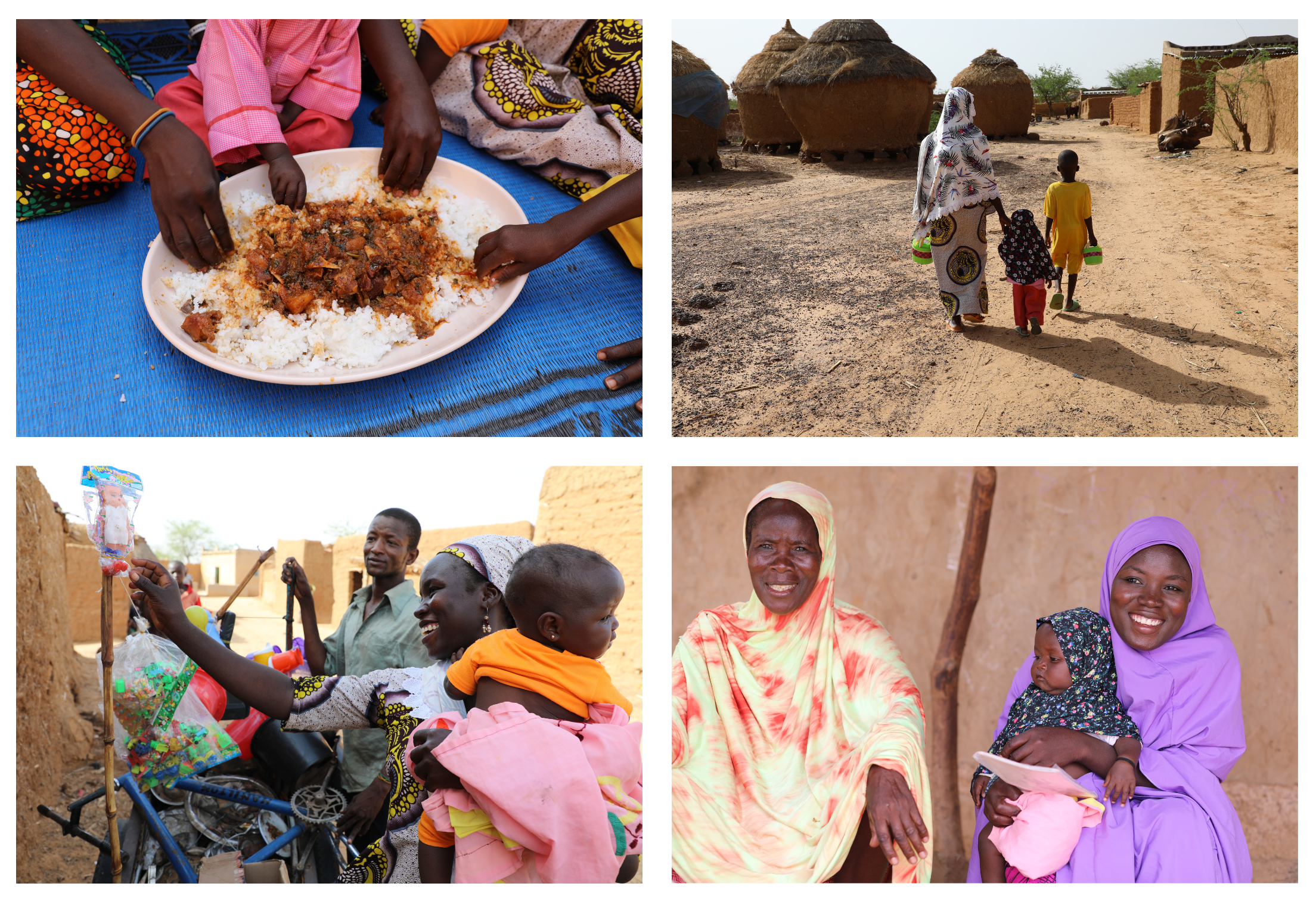
In the process of reaching children and mothers with lifesaving nutrition and health care, MOMENTUM has worked with the government of Niger to improve long-term resilience in the country’s community and primary health care systems to address maternal, newborn, and child health concerns. This resilience comes in the form of information and guidance for mothers of children under six months old on how to recognize and treat health risks; information across the health system on risks and their effects on mothers and children; and expanded availability of health care across a continuum for mothers, newborns, and children.
In 2023, the World Health Organization released new guidelines on the prevention and management of acute malnutrition in infants and children under five years, which now include specific guidance for infants under six months. By supporting integration of the MAMI approach into the health system in Niger, MOMENTUM is learning and sharing what works in the practical implementation and operationalization of these guidelines.
Consistent Support Teaches Mothers Sustainable Skills
A focus on resilience will have the largest footprint across communities after MOMENTUM phases out its presence. Beyond addressing immediate risks to mother and child health and treating illnesses and malnutrition, the MAMI Care Pathway is designed to encourage behavior change among mothers by expanding their knowledge to adopt positive health and nutrition practices for themselves and their children into the future. In Niger, under 30 percent of women exclusively breastfeed, and a minority of individuals have minimum dietary diversity (23.1 percent) and a minimum acceptable diet (19.5 percent).5
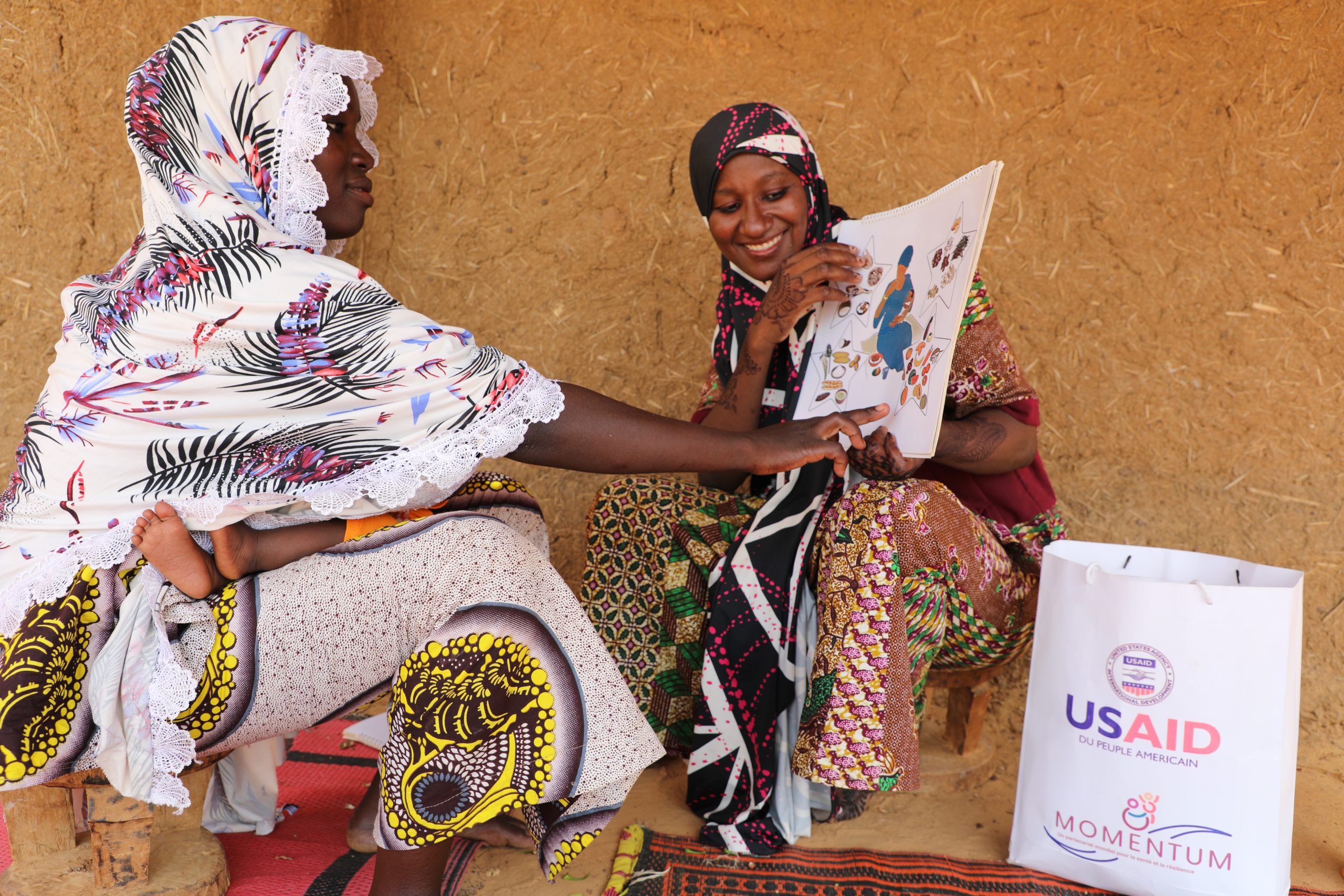
After the 24-month activity ends, MOMENTUM will evaluate its implementation of the MAMI Care Pathway and disseminate the findings, along with associated recommendations for policy change, to national leaders in Niger. It will also support the government in expanding and implementing the work in new areas of the country as funding allows. To be most effective and holistic, the MAMI Care Pathway is integrated with other efforts to improve maternal, newborn and child health and nutrition, all with a focus on strengthening primary health care.
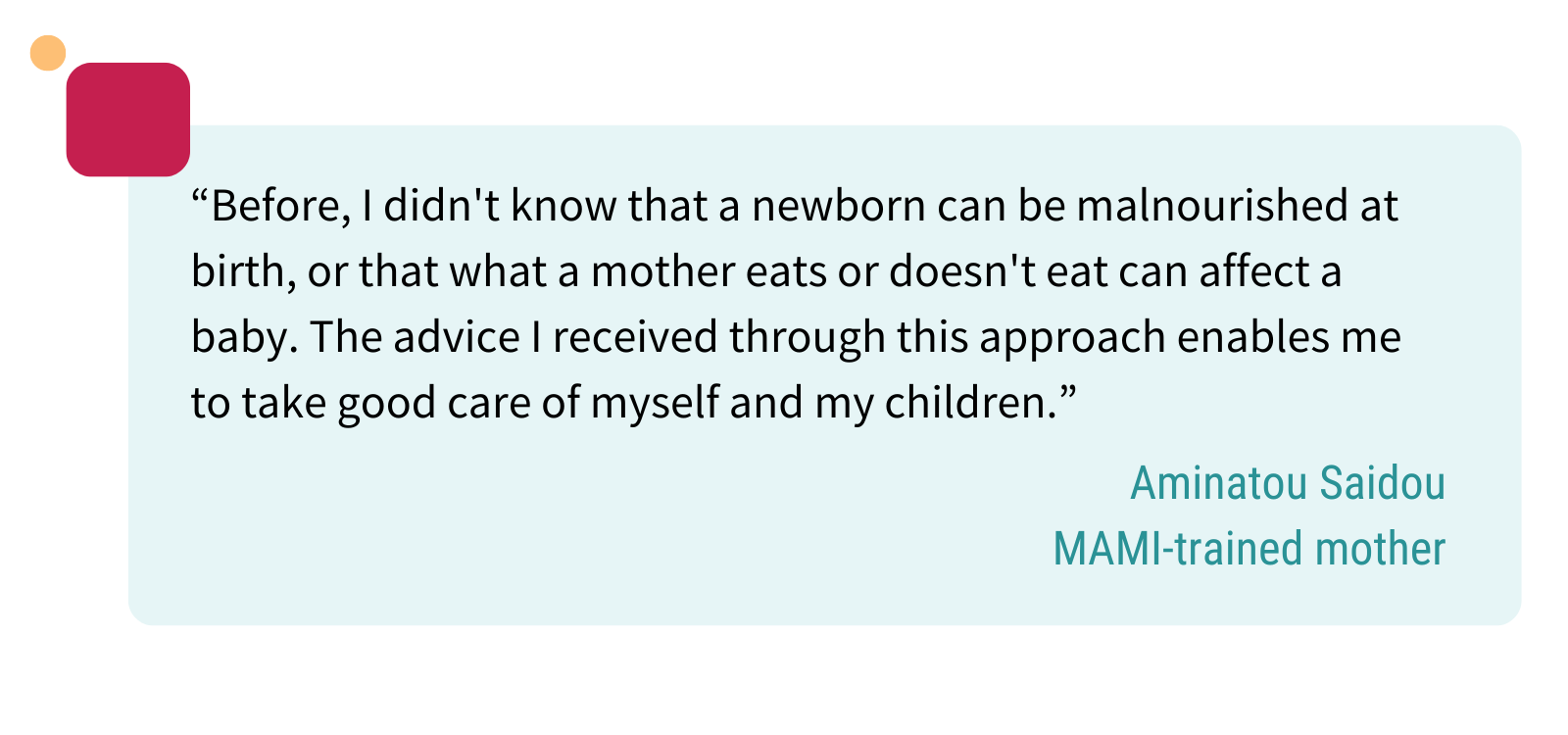
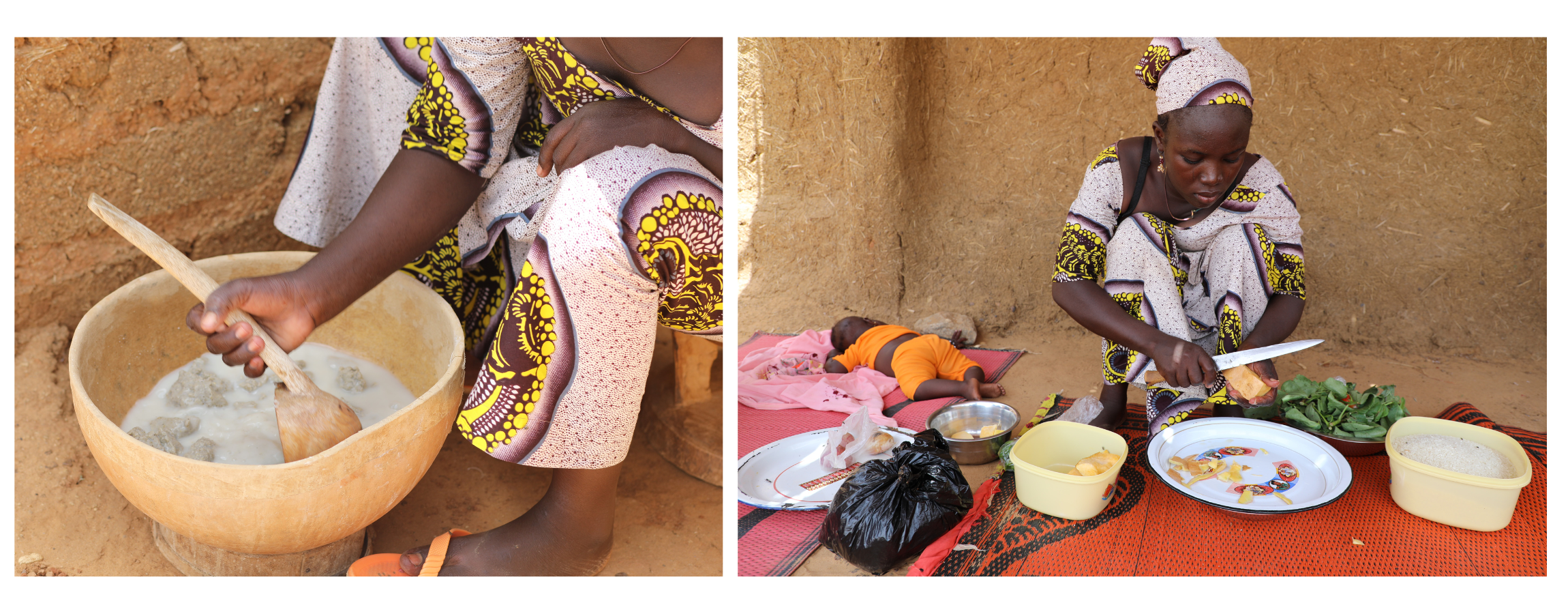
References
- https://news.un.org/en/story/2023/11/1143787#:~:text=Worldwide%2C%2045%20million%20children%20under,held%20on%20Monday%20in%20London
- https://www.who.int/news-room/fact-sheets/detail/malnutrition
- https://stat-niger.org/wp-content/uploads/rapport_enquete/Rapport_ENAFEME_2021.pdf
- https://journals.sagepub.com/doi/full/10.1177/11795565211049904
- https://fscluster.org/sites/default/files/documents/rapport_definitif_smart_niger_2021.pdf

